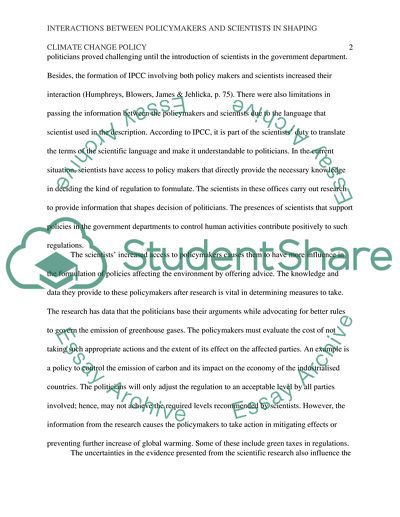Cite this document
(“Interactions Between Policymakers And Scientists Essay”, n.d.)
Retrieved from https://studentshare.org/environmental-studies/1700809-explain-how-interactions-between-scientists-and-policymakers-shape-policy-responses-to-climate-change
Retrieved from https://studentshare.org/environmental-studies/1700809-explain-how-interactions-between-scientists-and-policymakers-shape-policy-responses-to-climate-change
(Interactions Between Policymakers And Scientists Essay)
https://studentshare.org/environmental-studies/1700809-explain-how-interactions-between-scientists-and-policymakers-shape-policy-responses-to-climate-change.
https://studentshare.org/environmental-studies/1700809-explain-how-interactions-between-scientists-and-policymakers-shape-policy-responses-to-climate-change.
“Interactions Between Policymakers And Scientists Essay”, n.d. https://studentshare.org/environmental-studies/1700809-explain-how-interactions-between-scientists-and-policymakers-shape-policy-responses-to-climate-change.


